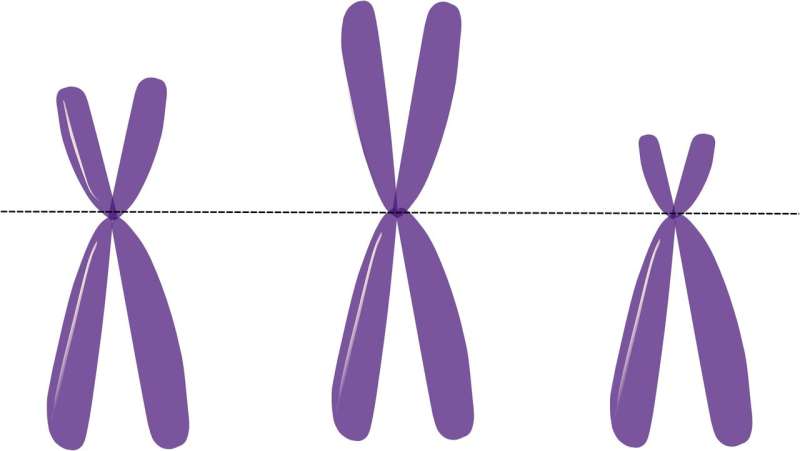
It has long been known that viral infections can be more severe in males than females, but the question as to why has remained a mystery—until possibly now. The key may lie in an epigenetic regulator that boosts the activity of specialized anti-viral immune cells known as natural killer (NK) cells.
In a study published March 16 in the peer-reviewed journal Nature Immunology, a collaborative team of UCLA researchers have found that female mouse and human NK cells have an extra copy of an X chromosome-linked gene called UTX. UTX acts as an epigenetic regulator to boost NK cell anti-viral function, while repressing NK cell numbers.
“While it is well-known that males have more NK cells compared to females, we did not understand why the increased number of NK cells was not more protective during viral infections. It turns out that females have more UTX in their NK cells than do males, which allows them to fight viral infections more efficiently,” said co-senior author Dr. Maureen Su, professor of microbiology immunology and molecular genetics, and of pediatrics, at the David Geffen School of Medicine at UCLA.
The researchers noted that this held true whether or not the mice had gonads (ovaries in females; testes in males), indicating that the observed trait was not linked to hormones. Furthermore, female mice with lower UTX expression had more NK cells which were not as capable of controlling viral infection.
“This implicates UTX as a critical molecular determinant of sex differences in NK cells,” said the study’s lead author Mandy Cheng, graduate student in molecular biology at UCLA.
The findings suggest that therapies involving immune responses need to move beyond a “one-size-fits-all” approach and toward a precision medicine model, also known as personalized medicine, that tailors treatments that take into account people’s individual differences, such as genetics, environment and other factors that influence health and disease risk, the researchers write.
“Given the recent excitement with using NK cells in the clinic, we will need to incorporate sex as a biological factor in treatment decisions and immunotherapy design,” said co-senior author Tim O’Sullivan, assistant professor of microbiology, immunology and molecular genetics at the Geffen School.
Study co-authors are Joey Li, Luke Riggan, Bryan Chen, Rana Yakhshi Tafti, Scott Chin, Feiyang Ma, Matteo Pellegrini, Haley Hrncir, and Arthur Arnold, all of UCLA.
More information:
Mandy I. Cheng et al, The X-linked epigenetic regulator UTX controls NK cell-intrinsic sex differences, Nature Immunology (2023). DOI: 10.1038/s41590-023-01463-8
Journal information:
Nature Immunology
Source: Read Full Article